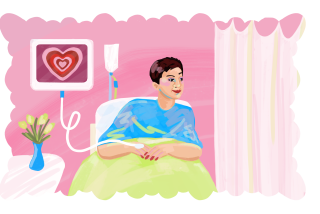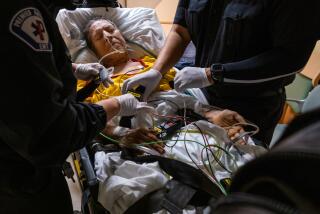Medical Bias
- Share via
In response to “Treating Doctors for Prejudice,” Dec. 20: Among the biases and attitudes afflicting those served by medical professionals and administrators is one I suffered from lately, at the risk of my life.
Arriving by ambulance from the scene of an automobile collision, I was hardly what one would call presentable. To all appearances I was a stereotype probably all too familiar to emergency room personnel. I was a seedy old codger, shabbily dressed, in need of a shave and a haircut, and most important, very probably indigent. I was sober--I do not drink--but I was disoriented by a concussion and unable to inform anyone about myself. I vaguely remember some indications of grim amusement. I was a “character.” Although a more thorough check of I.D. carried on my person would have revealed complete financial coverage for any treatment, and any precautionary attention deemed advisable simply because of my age, I was not kept for observation. No one was called, despite an emergency number clearly provided.
When I could walk and had performed the remarkable feat of naming myself and our current President, I was sent home, alone, in a cab. No follow-up call was made at any time. I live alone.
The hell of the rest of that night and all the next day I will not try to describe. On the second day, I got myself back to the same hospital complex, where I found a doctor to whom I was not a weekend statistic. His first questions were, “How did you manage to get here?” and “Why were you not at least kept overnight for observation?” My relationship with the hospital was improved markedly on proof of my ability to pay. After months of treatment for injuries undetected during my first brief stay I have recovered, physically.
But I have not ceased to wonder. What happens to the truly indigent aged? And I wonder, for I was sent home barefooted, what happened to my shoes and socks. I liked those shoes. They were a gift.
FRED SCIFERS
Downey


